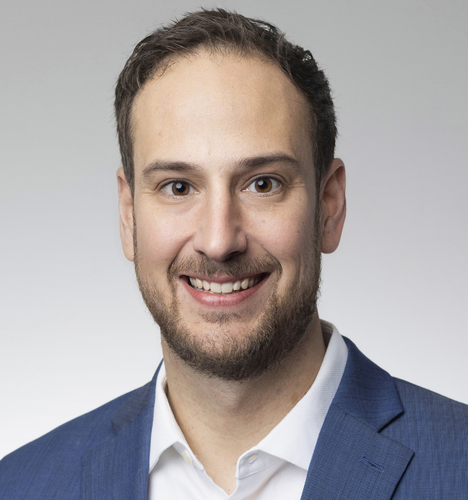Empire State Cannabis Update: Conditional Adult-Use Cultivation & Processor License Overview and Impact
By Thomas B. Hughes, Ryan V. Stearns
- To be eligible to apply for a conditional adult-use cultivation license, a cultivator must:
- Have held a valid industrial hemp grower authorization from the Department of Agriculture and Markets as of December 31, 2021;
- Be in good standing with the Department of Agriculture and Markets; and
- Have grown and harvested hemp for at least two of the past four years pursuant to that license and be able to provide proof of the amount of hemp grown.
- Cultivation is permitted only “within the same or an adjacent county” in which the license-holder has been authorized to grow hemp.
- Both outdoor and indoor cultivation in a greenhouse with no more than 20 artificial lights is permitted.
- Outdoor growers may cultivate up to 43,560 square feet of flowering canopy.
- Greenhouse growers may cultivate up to 25,000 square feet of flowering canopy.
- Cultivators may grow both indoors and outdoors under the same conditional license but will be restricted to 30,000 square feet of outdoor flowering canopy and 20,000 square feet or less of greenhouse flowering canopy.
- Conditional cultivation licensees are granted authority to process and distribute their products without holding separate processor and distributor licenses but are limited to products “in the form of cannabis flower.”
- This temporary distribution and/or processor license expires on June 1, 2023, at which point the conditional licensee must apply for a regular processor and/or distributor’s license if they wish to continue such activities.
- Conditional licenses will only be issued until December 31, 2022.
- Operations must begin within six months of the license being awarded or the license will be revoked.
- Licenses are valid through June 30, 2024.
- For the duration of the conditional period, “the ownership or organizational structure of the entity that is the licensee shall not be amended,” pursuant to certain exceptions (e.g., approval by the Cannabis Control Board (CCB)).
- In order to receive a license, applicants must agree to participate in both an environmental sustainability program and a social equity mentorship program
- Conditional licensees will also be required to enter into a labor peace agreement with a bona-fide labor organization that is actively engaged in representing or attempting to represent the applicant’s employees within six months of licensure
- Prior to 90 days of the conditional license expiring, the licensee must alert the Office of Cannabis Management (OCM) that it intends to apply for a full-time cultivator license.
- If the OCM finds the conditional licensee to be in good standing, the cultivator is eligible to apply for and receive an adult-use cultivation license
,so long as it can demonstrate that it meets the requirements of receiving such a license. - The full-time license awarded will be for, at a minimum, a cultivation license “for the size of flowering canopy that [the licensee was] licensed to grow pursuant to [its] conditional adult-use cultivator license or a larger size flowering canopy and authorization to use artificial light as may be set out by the [CCB].”
- A licensee may not separately apply for any license type under this article permitting the cultivation of adult-use cannabis while holding a conditional adult-use cultivator license.
- Have held a cannabinoid hemp processor license prior to January 1, 2022; and
- Hold an active cannabinoid hemp processor license issued by OCM.
- Processor activities shall only be permitted at the same location in which the licensee is authorized to process hemp, unless expressly authorized to do so elsewhere by OCM.
- A conditional adult-use processor license authorizes processing and manufacturing of cannabis products.
- Conditional processors are only permitted to perform extraction if they are currently authorized to extract under a cannabinoid hemp processor license.
- Licensees are granted the temporary authority to distribute cannabis products without holding an adult-use distributor until June 1, 2023.
- After June 1, 2023, any conditional processor seeking to distribute cannabis products shall be required to apply for and receive a full-time distributor license.
- Conditional licenses will only be issued until December 31, 2022.
- Operations must begin within six months of the license being awarded or the license will be revoked.
- Licenses are valid through June 30, 2024.
- For the duration of the conditional period, “the ownership or organizational structure of the entity that is the licensee shall not be amended,” pursuant to certain exceptions (e.g. approval by the CCB).
- In order to receive a license, applicants must agree to participate in both an environmental sustainability program and a social equity mentorship program.
- Conditional licensees will also be required to enter into a labor peace agreement with a bona-fide labor organization that is actively engaged in representing or attempting to represent the applicant’s employees within six months of licensure.
- Prior to 90 days of the conditional license expiring, the licensee must alert OCM that it intends to apply for a full-time cultivation license.
- If the OCM finds the conditional licensee to be in good standing, the cultivator is eligible to apply for and receive an adult-use processor’s license, so long as it can demonstrate it meets the requirements of receiving such a license.
Disclaimer: The information in this post is provided for general informational purposes only, and may not reflect the current law in your jurisdiction. No information contained in this post should be construed as legal advice from our firm or the individual author, nor is it intended to be a substitute for legal counsel on any subject matter. No reader of this post should act or refrain from acting on the basis of any information included in, or accessible through, this post without seeking the appropriate legal or other professional advice on the particular facts and circumstances at issue from a lawyer licensed in the recipient’s state, country or other appropriate licensing jurisdiction.




TAGS
CANNABIS
PRACTICE TEAMS
CANNABIS




